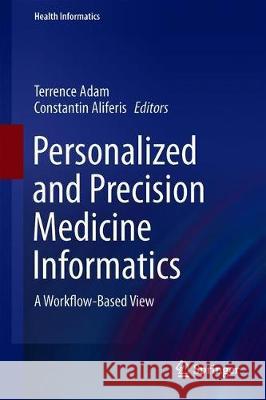Personalized and Precision Medicine Informatics: A Workflow-Based View » książka
topmenu
Personalized and Precision Medicine Informatics: A Workflow-Based View
ISBN-13: 9783030186258 / Angielski / Twarda / 2019 / 349 str.
Personalized and Precision Medicine Informatics: A Workflow-Based View
ISBN-13: 9783030186258 / Angielski / Twarda / 2019 / 349 str.
cena 563,56
(netto: 536,72 VAT: 5%)
Najniższa cena z 30 dni: 539,74
(netto: 536,72 VAT: 5%)
Najniższa cena z 30 dni: 539,74
Termin realizacji zamówienia:
ok. 16-18 dni roboczych.
ok. 16-18 dni roboczych.
Darmowa dostawa!
Kategorie BISAC:
Wydawca:
Springer
Seria wydawnicza:
Język:
Angielski
ISBN-13:
9783030186258
Rok wydania:
2019
Wydanie:
2020
Ilość stron:
349
Waga:
0.87 kg
Wymiary:
23.5 x 15.5
Oprawa:
Twarda
Wolumenów:
01











